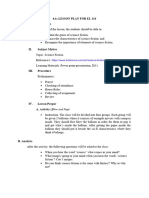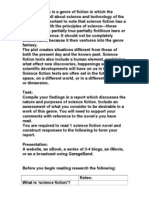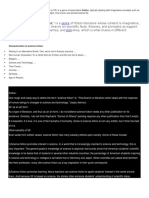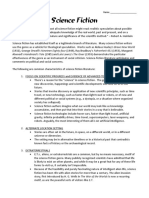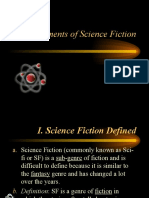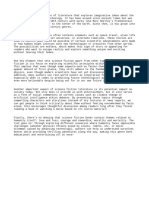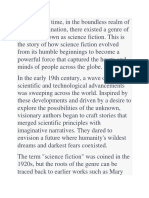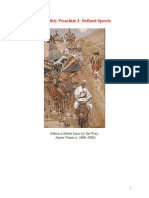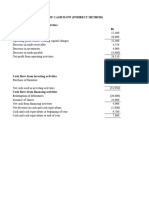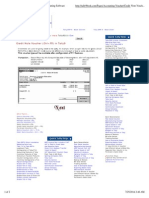0% found this document useful (0 votes)
52 views12 pagesSci Fi Handout
Science fiction, or 'sci-fi', is a genre of literature that blends imaginative storytelling with scientific principles, often exploring futuristic themes and alternative realities. Key elements of sci-fi include setting, character development, plot, themes, and structure, with common features such as time travel, alien life, and advanced technology. The genre has significant cultural importance, allowing exploration of scientific theories and their implications for the future.
Uploaded by
HEMA AKSHARA VALLBHENANI 8ACopyright
© © All Rights Reserved
We take content rights seriously. If you suspect this is your content, claim it here.
Available Formats
Download as PDF, TXT or read online on Scribd
0% found this document useful (0 votes)
52 views12 pagesSci Fi Handout
Science fiction, or 'sci-fi', is a genre of literature that blends imaginative storytelling with scientific principles, often exploring futuristic themes and alternative realities. Key elements of sci-fi include setting, character development, plot, themes, and structure, with common features such as time travel, alien life, and advanced technology. The genre has significant cultural importance, allowing exploration of scientific theories and their implications for the future.
Uploaded by
HEMA AKSHARA VALLBHENANI 8ACopyright
© © All Rights Reserved
We take content rights seriously. If you suspect this is your content, claim it here.
Available Formats
Download as PDF, TXT or read online on Scribd
/ 12





